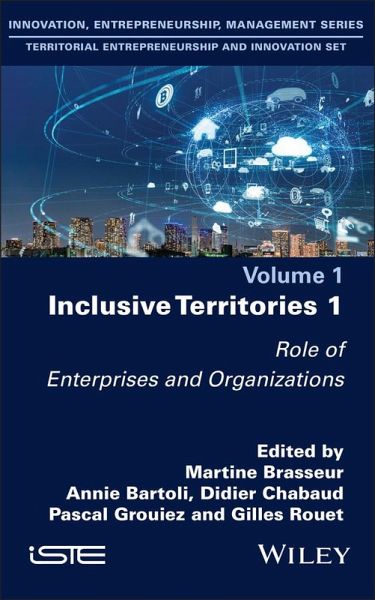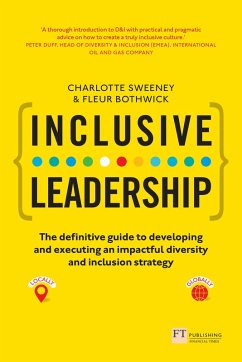
Inclusive Territories 1 (eBook, ePUB)
Role of Enterprises and Organizations
Redaktion: Brasseur, Martine; Rouet, Gilles; Grouiez, Pascal; Chabaud, Didier; Bartoli, Annie
Versandkostenfrei!
Sofort per Download lieferbar
114,99 €
inkl. MwSt.
Weitere Ausgaben:

PAYBACK Punkte
0 °P sammeln!
Inequalities and other "social fractures" mark our contemporary economies and societies. While global approaches may have long been sufficient in the past, the focus today is on how local dynamics can make inclusion possible. This two-volume collective work reports on these local dynamics, shedding light on how the creation of inclusive territories can be envisaged and developed. To this end, the involvement of public, private and associative organizations has been identified as one of the conditions for success. In fact, they act both as partners in a territory and as inclusive spaces. Inclus...
Inequalities and other "social fractures" mark our contemporary economies and societies. While global approaches may have long been sufficient in the past, the focus today is on how local dynamics can make inclusion possible. This two-volume collective work reports on these local dynamics, shedding light on how the creation of inclusive territories can be envisaged and developed. To this end, the involvement of public, private and associative organizations has been identified as one of the conditions for success. In fact, they act both as partners in a territory and as inclusive spaces. Inclusive Territories 1 examines the approaches implemented by several organizations that have made inclusion their wider objective.
Dieser Download kann aus rechtlichen Gründen nur mit Rechnungsadresse in A, B, BG, CY, CZ, D, DK, EW, E, FIN, F, GR, HR, H, IRL, I, LT, L, LR, M, NL, PL, P, R, S, SLO, SK ausgeliefert werden.













